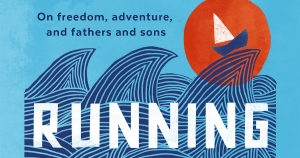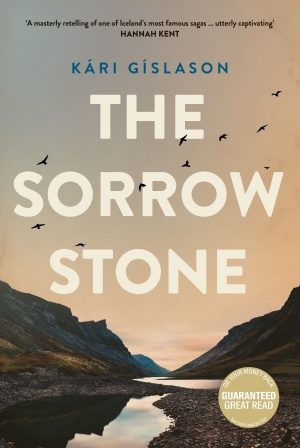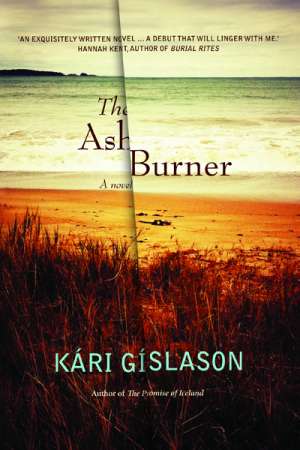Kari Gislason
Shannon Burns reviews ‘Running with Pirates: On freedom, adventure, and fathers and sons’ by Kári Gíslason
Kári Gíslason’s memoir of escape and adventure during his early adulthood begins in transit: he is freshly eighteen, ‘sleeping on the floor next to hot air vents at the back of a grand old ferry that connected Brindisi in the heel of Italy with Athens’. Kári is travelling with an ‘often-jolly, sometimes sarcastic’ Scotsman named Paul, and their relationship has begun to fray. Worse, they are low on money, which means their travels and ‘freedom’ may soon be over. Gíslason notes: ‘We were unemployable. I was sickly thin, and my hair past my shoulders and knotted. Paul always looked like he’d just woken up.’ Both are searching for ways to forget their troubles and orient themselves as they take the first steps into manhood, but the pressures that come with such a task have left them feeling oppressed and alienated.
... (read more)Dilan Gunawardana reviews 'The Sorrow Stone' by Kári Gíslason
In his extraordinary journey through Iceland’s history, Saga Land (2017, with Richard Fidler), Kári Gíslason described Icelanders as ‘being reserved’ and ‘a bit severe’ at first glance, likening them to the Hallgrímskirkja church that looms over Reykjavik with its enormous basalt column wings and stony façade. The first three days I spent alone in that city gave me a wholly different impression of its people. On my first day there in 2013, I was greeted by what appeared to be most of the city’s population lined up on the Lækjargata strip waving flags, smiling from ear to ear, and dancing as the annual Gay Pride parade rolled by in all its garish joy.
... (read more)Kári Gíslason reviews 'In the Land of the Cyclops' by Karl Ove Knausgaard
Once, during a teaching exchange in Germany, I found myself learning as much from my students as I was trying to teaching them. This is not unusual. Delivering my thoughts to others, and then having them modified during discussions, helps me to understand what I want to say. By the end of the class, I begin to see what I probably should have known from the start.
... (read more)Kári Gíslason reviews 'Aftershocks: Selected writings and interviews' by Anthony Macris
At the beginning of this wide-ranging collection of criticism by the novelist, critic, and academic Anthony Macris, the author notes wryly that an early candidate for the book’s title was Personality Crisis, such is its diversity of topics and styles. The implication here is that reviews and essays form a kind of autobiography. I’m not sure I would use the word ‘crisis’ to describe it, but certainly the portrait we have in this case is of a writer driven by very different kinds of curiosity: about literature and writing but also the art forms that lie beyond them – and, as centrally, by a social and political curiosity about the ways those forms change when they respond to the world around us.
... (read more)Kári Gíslason reviews 'Henrik Ibsen: The man and the mask' by Ivo de Figueiredo, translated by Robert Ferguson
Kári Gíslason reviews 'Scandinavians: In search of the soul of the North' by Robert Ferguson
When I was twenty-seven, I visited mainland Scandinavia for the first time. I had spent the last of my travel money on a rail pass, and I was on a tight budget. One day, I thought I would save some money on accommodation by catching an overnight train from Stockholm to Trondheim. When I woke up the next morning ...
... (read more)One of the claims that is sometimes made for the memoir form is that it gives the author a degree of release from the past. Getting it down on paper can also be about ...
... (read more)In a critical moment of reflection and pause, Romulus, My Father offers the reader a key to its interpretation. The author – philosopher Raimond Gaita – tells us that ‘Plato said that those who love and seek wisdom are clinging in recollection to things they once saw’. This reference to the Greek philosopher’s work < ...
Catriona Menzies-Pike reviews 'The Ash Burner' by Kári Gíslason
Midway through Kári Gíslason’s début novel, The Ash Burner, Ted, his dreamy, curious narrator, watches Anthony paint Claire. As she strikes angular poses for him, Ted reflects on how he would paint her: ‘I would have waited for the moments when she relaxed that pose and when her outline, the shape of her waist, was allowed to stand uncorrected by art o ...
Kári Gíslason reviews 'Hans Christian Andersen: European witness' by Paul Binding
How a writer bears witness to his age is necessarily the expression of many things, not least the possibly quite peculiar nature of an author’s life. Literary works often emerge from complex upbringings, from periods of youthful isolation spent reading and writing. More still seem to have been written as a result of the fraught relationships that befall authors, perhaps because authors so often view their relationships with a degree of creative and critical distance. And yet, if a writer’s output evidences an unusual life, it also witnesses broader questions being asked by a community as a whole. At some level, even the most remarkable figures are typical of their age, and reflections of it. By the close of Paul Binding’s study of the life and works of Hans Christian Andersen (1805–75), we are reminded that extraordinary feats of originality and imagination are often the result of how unique minds enter wider discourses.
... (read more)








